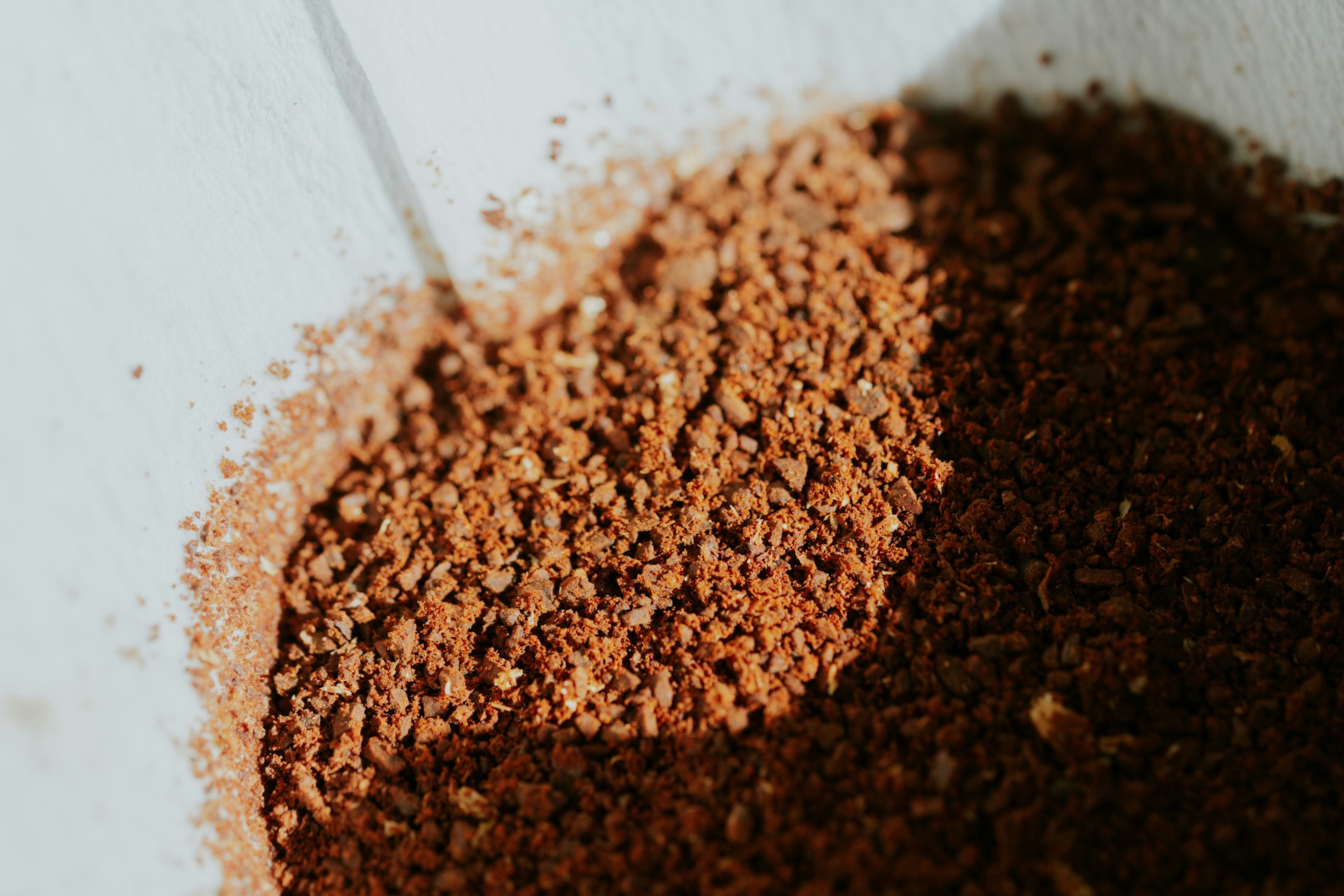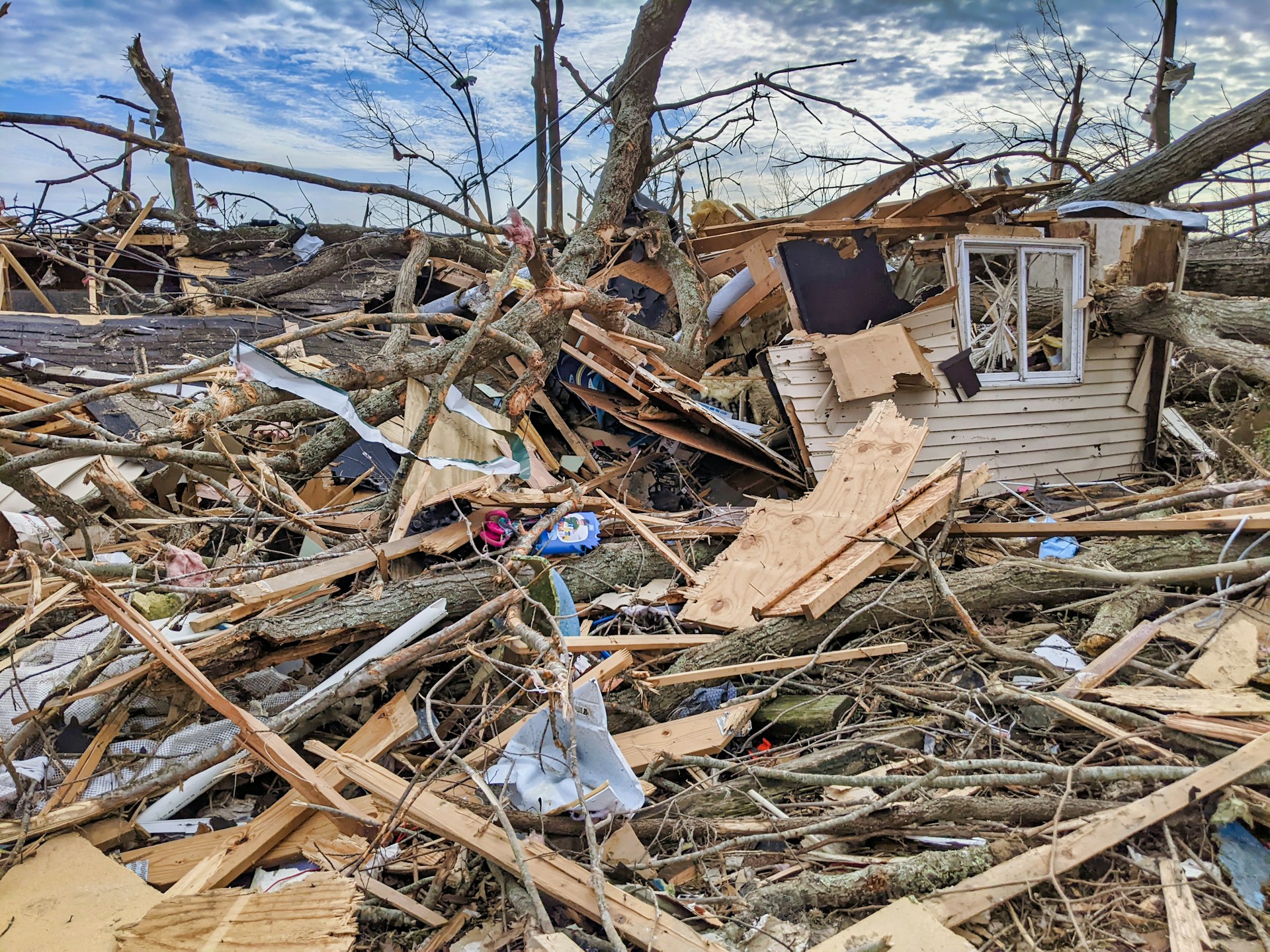Preparedness
Paradise Nightmare: US Tourist Faces 12 Years for Forgotten Ammo

For Ryan Watson, an American tourist, a dream Caribbean vacation quickly turned into a distressing ordeal filled with ‘terrifying interrogations’ and substantial living expenses, when four rounds of hunting ammunition were found hidden in his luggage. Watson and his wife had travelled to the island of Turks and Caicos for a leisure trip, one that saw them landing a potential 12-year prison term.
The couple, hailing from Oklahoma, made the journey in early April to join friends in celebrating their 40th birthdays. On the 12th of April, security personnel at Howard Hamilton International Airport discovered the ammunition, which had been inadvertently left in a duffel bag post a deer hunting trip, as detailed on a GoFundMe page set up on the family’s behalf.
Surprisingly, the ammunition made its way through security checks at their home airport, Will Rogers World Airport. The Transportation Security Administration is currently investigating this lapse in security.
“TSA is conducting a review at OKC, which was the originating airport,” the Transportation Security Administration said in a statement.
In Turks and Caicos, both Ryan and Valerie Watson faced charges for possession of ammunition, an offence that carries a minimum sentence of 12 years behind bars.
Watson reported to the Daily Mail that their arrest was followed by a “terrifying interrogation”. He added, “It was all pretty intimidating.”
Valerie commented on WBTS-TV, “When I heard that, I immediately was terrified because I was like, we can’t both be in prison for 12 years. We have kids at home. And this is such an innocent mistake that we didn’t even know we weren’t – we didn’t even know it was there. So yeah, my immediate thought was our kids and them being, you know, parentless for, for that long.”
Valerie, an elementary school teacher, was eventually cleared of the charges and returned home to be with their children.
In an attempt to secure Ryan’s release, Oklahoma Governor Kevin Stitt reached out to the Turks and Caicos Islands government.
“The Watsons are upstanding members of their community and the State of Oklahoma, and I can assure you countless others stand willing to confirm their high moral characters,” Stitt wrote.
“First and foremost, the Watsons are devoted parents,” Stitt said. “Their two young children, Van and Ellie, need their parents home without delay. Mr. and Mrs. Watson would never intentionally break the law. Again, they are unwavering in moral character, reliable neighbors, and devoted community members.”
Ryan Watson, after nearly two weeks in custody, was able to secure his release by paying a $15,000 bond. There were conditions attached, including forfeiting his passport and staying within the country’s boundaries, while also regularly reporting to local authorities.
The involuntary extended stay in Turks and Caicos has resulted in significant expenses for Watson. He has reportedly been residing in a $500-a-night Airbnb, financially supported by his in-laws.
A GoFundMe set up for the Watson family has garnered close to $210,000 in donations to cover legal and living expenses.
The next court appearance for Watson is slated for June 7th.
Watch a local news report about the incident below:
Let us know what you think, please share your thoughts in the comments below.

Preparedness
Declutter Your Homestead: 11 Must-Toss Items This Spring

As we prepare for the annual ritual of spring cleaning, it’s important for homesteaders to focus on decluttering and streamlining their spaces. The goal is to create a more efficient and self-sufficient home environment by eliminating unnecessary items. Here are 11 types of items you should consider parting with during your cleanup.
Pantry
Take a close look at your pantry. Homesteaders are adept at storing long-term, shelf-stable foods, but even these can expire. “Do a date check on all your food items and toss those that have gone bad.” Pay particular attention to home-canned goods, as consuming spoiled canned food can pose serious health risks, such as botulism.
Refrigerator
It’s easy to accumulate expired or unused condiments that take up valuable space. Clearing out these items will make room for fresh, nutritious food.
Paper clutter
Paper clutter is another common issue. From receipts to mail, paper can quickly pile up. During your cleaning, gather all the loose pieces and sort them. If you plan to compost paper, remember to separate newspaper and printer paper from colored and glossy papers, which “can contain heavy metals, which is unsafe.” Shredded paper can be excellent for mulch or compost.
Self-sufficiency
Consider the items that don’t contribute to your self-sufficiency. For instance, a box full of outdated cords and cables for electronics you no longer own should be discarded. “When you come across any items during your spring cleaning that do not serve a clear purpose on your homestead or are unrepairable, toss them.”
Bathroom
In the bathroom, review your beauty products. Many people overlook the fact that these items have expiration dates. Dispose of expired makeup and lotions, including any DIY products that are past their prime. Ideally, these should be replaced annually.
Sentimental items
Sentimental items can be difficult to part with, but if they’re taking up too much space, consider donating them. If your basement is filled with old mementos, ask yourself if you need the space for something more practical, like a root cellar. Taking photos of these items before donating can help preserve their memory.
Products
One-time-use products are another area to address. Transitioning to reusable alternatives, such as beeswax wraps instead of Ziploc bags, or glass containers instead of disposable ones, can significantly reduce waste. This is a step towards achieving a zero-waste lifestyle.
Updating
Spring is also the perfect time to replace items that require regular updating, like the batteries in your alarms. As you declutter, eliminate duplicates, especially if they’re unnecessary. “There is a difference between being prepared and hoarding unnecessarily.”
Materials
Consider the leftover materials from past projects. If you have stray pieces of wood or PVC pipe that aren’t likely to be used, it’s time to let them go. Similarly, as your children grow, pass along their toys to younger kids or sell them in a yard sale. Encourage your kids to participate by choosing toys they’re ready to part with.
Craft materials
Craft materials can also accumulate over time. Be realistic about what you will actually use. For example, don’t hold onto every scrap of fabric if there’s not enough to make something worthwhile. “Be honest with yourself as you clean.”
Seed packets
Finally, go through your seed packets. While they can last a few years if stored properly, they don’t last indefinitely. Check for a “sow by” date on the packets, and discard the oldest ones as they may not germinate well.
By focusing on these 11 areas, you can make your homestead more organized and efficient, paving the way for a more self-sufficient lifestyle.
Let us know what you think, please share your thoughts in the comments below.
Preparedness
Unlock Hidden Homestead Hacks with Coffee Grounds

After savoring your morning coffee, don’t be too quick to discard the grounds. These remnants of your caffeine fix are surprisingly versatile and can become a valuable resource on your homestead. Not only can they help you save money, but they also offer numerous benefits for your garden and household.
One of the simplest ways to use coffee grounds is by incorporating them into your compost pile. They act like green waste, similar to grass clippings, adding essential nutrients. A study highlighted by Healthline found that “compost made with coffee grounds and kitchen waste was richer in nutrients than compost made with waste alone.” Another study demonstrated that compost with 40% coffee grounds produced fewer greenhouse gas emissions and yielded superior quality compost.
Enhancing your soil is another benefit of coffee grounds. Their acidity can lower soil pH, which is particularly beneficial for certain plants. Spread the grounds in your garden and rake them into the soil, especially if you’re cultivating plants like hydrangeas or roses. These flowers thrive in acidic environments, and coffee grounds make an excellent fertilizer for them. Other plants such as blueberries, azaleas, and rhododendrons also appreciate the acidity.
If you maintain a worm farm, coffee grounds will be a hit with your worms, promoting their population growth. Additionally, coffee-scented worms are attractive to fish like trout and bass, making them useful for fishing.
Coffee grounds also combat soil pathogens, including fungi, due to their anti-microbial properties. This makes them beneficial for vegetables prone to mildew diseases, such as spinach, beans, and tomatoes. Natural Living Ideas notes that “compost containing just 5% coffee grounds can provide this protective effect.”
As a slow-release fertilizer, coffee grounds are nutritionally balanced. By adding a few scoops to your plants every few weeks, you can save money on commercial fertilizers.
While worms and fish are drawn to coffee, other pests are not. The texture of coffee grounds deters soft-bellied pests like slugs and snails. Moreover, caffeine in the grounds is toxic to insects, helping repel bugs. Scatter them in your garden to keep pests at bay and place them in bowls near seating areas to ward off mosquitos. The scent also deters cats from wandering into your garden.
Coffee grounds are excellent for neutralizing odors. It’s not just the coffee aroma; the nitrogen in the grounds combines with carbon to eliminate unpleasant smells. You can use them to freshen various spaces around your homestead. For instance, a bowl of coffee grounds in your refrigerator can neutralize odors, while scrubbing your hands with them removes smells from foods like fish, garlic, or onions.
The gritty texture of coffee grounds makes them effective as a skin exfoliant. Mix them with water or coconut oil and scrub on areas with dead skin. This texture also makes them useful for cleaning pots and pans. Sprinkle grounds directly into cookware and scrub as usual before rinsing.
In the kitchen, coffee grounds can enhance your culinary endeavors. They serve as a rub for meats like ribs, steak, and brisket, and their natural acids and enzymes make them effective meat tenderizers. Healthline explains, “Salt, enzymes and acids are three natural types of meat tenderizers. Coffee contains natural acids and enzymes, making it especially effective at tenderizing meat.”
For pet owners, coffee grounds can be a natural flea treatment. Rub them through your pet’s fur after shampooing and rinse thoroughly. However, remember that coffee is toxic to dogs if ingested, so ensure the grounds are used externally only.
In winter, coffee grounds provide an eco-friendly way to de-ice pathways. They help melt ice while adding traction, making them a sustainable alternative to salt.
Lastly, coffee grounds can be used in candle-making, adding a unique scent to your homemade creations. By following a simple process, you can craft candles that not only light up your space but also fill it with a pleasant aroma.
Incorporating coffee grounds into your homestead routine is a practical way to reduce waste and enhance your living environment. Even if you’re not a coffee drinker, you can often obtain used grounds from local cafes. Embrace this resourceful approach and discover the many benefits coffee grounds have to offer.
Let us know what you think, please share your thoughts in the comments below.
Preparedness
Ultimate Tornado Survival Kit Guide: Prepare and Protect Your Family

Preparing for a tornado can be daunting, but having a well-equipped survival kit is a crucial step in ensuring your safety and that of your loved ones. This guide will walk you through the essentials needed in a tornado survival kit, covering everything from protective gear to communication devices.
Understanding the risks in your area is the first step. Research your region’s tornado season and historical risk levels to tailor your kit accordingly. Areas with higher risks may require additional precautions and supplies.
Store your survival kit in a secure location like a basement or storm shelter, where it can be easily accessed by all family members. Use a waterproof container or plastic bin to keep your supplies dry and organized.
Your kit should include personalized items such as necessary medications, dietary-specific foods, and supplies for infants or elderly family members. Don’t forget comfort items for pets and children to help reduce stress during the storm.
“Conduct tornado drills so everyone knows their role and location.” Timing these drills can help identify any improvements needed for quicker access to your kit and shelter.
A tornado survival kit, often referred to as a tornado bag, is essential for weathering a tornado safely. Basic items include a backpack or plastic bin to hold your supplies, a first aid kit, and a whistle to signal for help. These items are fundamental, but customizing your kit based on personal needs is equally important.
Staying informed is critical. “The most crucial thing is to stay alert and pay attention when tornado warnings are issued in your area.” Utilize multiple sources like TV, radio, and smartphone apps to monitor weather alerts.
When a tornado warning is issued, seek the most protective shelter possible. Basements, storm cellars, or interior rooms on the lowest floor are ideal. Avoid rooms with windows or exterior walls and stay covered under something sturdy.
Having the right gear during a tornado can protect your family and provide essential communication and lighting if the power fails. Equip your kit with sturdy helmets, shatterproof goggles, and N95 respirator masks. A battery-powered or hand-crank NOAA weather radio is crucial for receiving emergency alerts when other systems fail.
Multiple flashlights with extra batteries ensure visibility, and durable work gloves protect your hands from debris. “Equipping your tornado kit with protective gear enables your family to remain safer in dangerous conditions.”
In addition to safety gear, stockpile emergency food and water. Canned goods, protein bars, and dehydrated meals are practical choices. Plan for at least one gallon of water per person per day, using clean, food-grade containers.
Comfort items like warm blankets, inflatable pillows, and entertainment options can make sheltering more bearable. Proper clothing for both indoor and potential outdoor conditions is also essential.
Communication is key during a tornado. Pack a loud emergency whistle and two-way radios for reliable backup communication. Keep chargers for all devices in waterproof bags and ensure they’re fully charged before tornado season begins.
Securing important documents is vital. Store copies of identification, medical records, and insurance information in a waterproof container. This ensures you have access to necessary documents for filing claims and accessing aid services.
In summary, a well-stocked tornado survival kit is an investment in your family’s safety. Keep your kit in an accessible location, update it regularly, and tailor it to your household’s unique needs. With preparation and the right supplies, you can face tornadoes with greater confidence and security.
Let us know what you think, please share your thoughts in the comments below.
-

 Tactical12 months ago
Tactical12 months ago70-Year-Old Fends Off Intruder with Lead-Powered Message
-

 Tactical12 months ago
Tactical12 months agoVape Shop Employee Confronts Armed Crooks, Sends Them Running
-

 Preparedness8 months ago
Preparedness8 months agoEx-Ballerina’s Guilty Verdict Sends Tremors Through Gun-Owner Community
-

 Preparedness6 months ago
Preparedness6 months agoGood Samaritan Saves Trooper in Harrowing Interstate Confrontation
-

 Tactical12 months ago
Tactical12 months agoMidnight SUV Theft Interrupted by Armed Homeowner’s Retaliation
-

 Survival Stories2 years ago
Survival Stories2 years agoEmily’s 30-Day Experience of Being Stranded on a Desert Island
-

 Preparedness7 months ago
Preparedness7 months agoArizona Engineer’s Headless Body Found in Desert: Friend Charged
-

 Preparedness7 months ago
Preparedness7 months agoBoy Saves Dad from Bear Attack with One Perfect Shot